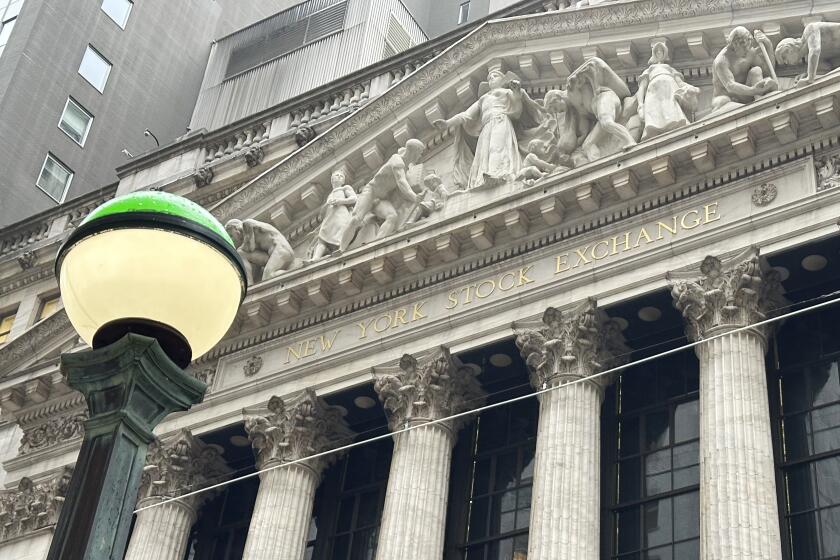U.S. Supreme Court Lets Stand Rulings Backing ATM Charges
The U.S. Supreme Court handed the banking industry a final victory Tuesday in its 3 1/2-year battle with the cities of Santa Monica and San Francisco over automated teller machine fees.
The court refused to hear an appeal of lower court rulings that overturned laws the two cities passed in 1999 to bar banks from charging for the use of their ATMs by customers of other institutions.
Bank of America Corp., Wells Fargo & Co. and the California Bankers Assn. had sued to challenge the laws, which the lower courts threw out on grounds they conflicted with federal banking rules.
BofA, the largest bank in California by deposits, and San Francisco-based Wells Fargo, the second-largest, have national banking charters issued by the U.S. Office of the Comptroller of the Currency, whose regulations permit banks to charge ATM fees to non-customers.
Backers of the laws say the problem isn’t ATM fees per se, but that consumers are charged twice for using ATMs at banks where they don’t have accounts -- once by their own banks and once by the other institutions.
The banks share the first fee, which more than covers their costs, said Santa Monica City Council member Kevin McKeown, a member of the Green Party’s national committee.
“We tried a pioneering consumer-protection measure, one that you’ll probably never see proposed by state and federal legislators who are dependent on big bank donations for their campaigns,” McKeown said.
Santa Monica council member Michael Feinstein, who with McKeown proposed the fee ban, said Wells Fargo and BofA, which have by far the most ATMs in California, used the fees to pressure customers not to switch to smaller banks.
“This was a case where we had that rare hope that the little people would be victorious,” Feinstein said. “And in the end it didn’t happen.”
Charlotte, N.C.-based Bank of America said the decision upheld “the right of banks, like other businesses, to price products and services.”
At Wells, a spokeswoman said the bank had built its extensive ATM network “at significant cost” for the benefit of its customers, who use it for free and account for 92% of the transactions.
Non-customers choose to pay for the convenience of using Wells Fargo ATMs, spokeswoman Mary Trigg said.
“They can avoid the fee by using their own bank’s ATM or by asking for cash back from a debit card transaction.”
In their legal filings, attorneys for San Francisco and Santa Monica said Congress never intended to keep local governments from restricting the surcharges, which typically are $1.50 and are in addition to any charges the customers’ own banks impose for ATM transactions.
Consumer groups expressed disappointment at the outcome of the case, which Edmund Mierzwinski, director of consumer programs for the U.S. Public Interest Research Group, described as part of a broader fight over whether national banking regulations override local consumer-protection laws, as the banks and the OCC contend.
The issue of federal preemption also has cropped up in connection with local and state laws on such financial issues as regulating so-called predatory lending practices, customer privacy, credit card interest disclosures and when lenders may begin charging mortgage interest, Mierzwinski noted.
In adopting the ban, the cities contended that the ATM fees were unfair to the elderly and the disabled.
But in October, the U.S. 9th Circuit Court of Appeals upheld a U.S. District Court decision that federal laws and regulations prevailed.
Owen P. Martikan, deputy San Francisco city attorney, said the appeals, handled in-house by the legal staffs of his city and Santa Monica, were time-consuming.
He suggested that consumers could avoid fees by shopping around for credit unions that allow free access to their network of machines or small banks that cover the costs of ATM transactions up to a set number per month.







